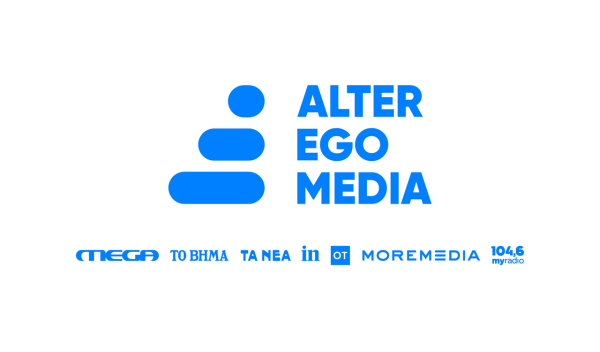
Investments in commercial real estate in the Greek market reached a record 1.65 billion euros in 2022, marking a 40% increase compared to 2021. This results from the data processed by Cushman & Wakefield Proprius, pointing out that this development this happened despite a slowdown in European markets and a decrease in trading volume in most of them.
It is noted that the survey does not include the acquisition of a majority stake in the Sani/Ikos group by the international investment fund of Singapore GIC, as well as the agreement for the purchase of the skyline real estate portfolio from the Dimand-Premia Properties joint venture.
By category
The hotel market gathered the largest volume of transactions, with 36 recorded transactions worth €620 million, with the office market following with €410 million in 46 transactions. Core+ office space investments garnered the highest transaction volume at 51%, followed by value added and opportunistic investments.
The shops and shopping centers sector comes a close third, attracting €327m across 32 transactions, recording a 200% year-on-year increase over 2021.
The logistics & industrial real estate sector attracted investments of approximately €100 million, while approximately the same amount was invested in land purchases for the purpose of development.
Domestic AEAAPs continue to invest significant funds, in the commercial real estate market in 2022, investing almost €400 million mainly in the hospitality sectors, in privileged offices and in the acquisition of land for development, while €380 million concerns the inflow of purely foreign capital, at levels lower than expected in the context of adverse global economic circumstances.
The trends for 2023
According to Cushman & Wakefield Proprius head Niki Sympoura, most of the trends summarized below that began in the post-pandemic environment of 2022 are set to continue in 2023, with an eye, of course, on the upcoming national elections and the political risk that contain, in view of a possible unstable political setting. Specifically, these trends are summarized in the following ten points:
1. A large percentage of transactions concern domestic players. The Greek commercial real estate market consistently attracts strong interest from domestic individuals and institutional investors.
2. High percentage of accumulated savings directly or indirectly affected the real estate market. With the gradual return to normalcy a significant number of buyers increased their consumption of goods and services and investment in existing or new properties.
3. The retail market is recovering. After a long period of recession in the store space, the interest of investors and development companies is returning to the space, while an increase in sales and traffic is recorded in central markets and a shift towards leisure and the experimental shopping process.
4. ESG (Environmental, Social and Governance) criteria and sustainable developments are at the heart of user and investor strategy, while they are now a strategic tool for attracting investments, customers and staff. Investors aim to certify their properties according to LEED, BREEAM, as well as other internationally recognized grading and benchmarking systems.
5. Interest in Logistics will continue to be strong from domestic and international investors. We expect this trend to continue in 2023 due to continued high demand and low supply while a lack of product will continue to drive investors into the land market.
6. Major private development projects are expected to reshape markets. The interest is focused on the progress of the large development projects with a focus on the ‘Greek’ which are expected to influence and redefine the markets of offices and shops.
7. Turning to alternative investments. The intense competition between real estate investment companies leads companies to search for alternative categories of real estate, which ensure higher returns such as serviced apartments, school complexes, student residences, senior living, etc.
8. The hotel market remains in focus due to the significant increase in tourism. Given the popularity of tourism in Greece, the tourism industry will continue to be in focus.
9. Inflated construction costs, skilled labor shortages and rising construction wages will be closely watched during 2023. Developers may need to explore alternative avenues of cost reduction with a further focus on cost control, risk assessment and process improvement.
10. Within 2023, users are expected to move into the space they will be asked to use in the following years. In 2022, offices take-up of more than 100,000 sq m, up 25% from last year. This trend is expected to continue in 2023, with the bet now focused on the percentage of users who will be willing to agree to office leases with future delivery, according to their requirements, and simultaneous commitment with a closed lease period (pre let).
Latest News

IMF: US Tariffs Shake Global Economy, Outlook Downbeat
IMF slashes global growth forecast to 2.8% as U.S. tariffs create uncertainty and ‘negative supply shock

First Step Towards New Audiovisual Industry Hub in Drama
The project is set to contribute to the further development of Greece’s film industry and establish Drama as an audiovisual hub in the region

Airbnb Greece – Initial CoS Ruling Deems Tax Circular Unlawful
The case reached the Council of State following annulment applications filed by the Panhellenic Federation of Property Owners (POMIDA)

Mitsotakis Unveils €1 Billion Plan for Housing, Pensioners, Public investments
Greek Prime Minister Kyriakos Mitsotakis has announced a new set of economic support measures, worth 1 billion euros, aiming to provide financial relief to citizens.

Alter Ego Ventures Invests in Pioneering Gaming Company ‘Couch Heroes’
Alter Ego Ventures' participation in the share capital of Couch Heroes marks yet another investment by the Alter Ego Media Group in innovative companies with a focus on technology.

Corruption Still Plagues Greece’s Driving Tests
While traffic accidents continue to claim lives on Greek roads daily, irregularities and under-the-table dealings in the training and testing of new drivers remain disturbingly widespread

Pope Francis Died of Stroke and Heart Failure Vatican Confirms
As news of the official cause of death spread, tributes poured in from across the globe. The 1.4 billion-member Catholic Church is united in grief, remembering a pope who championed inclusion, justice, and compassion

Increase in Both Museum Visits, Revenues for 2024
As expected, the Acropolis was the top archeological site in the country, followed by Sounion, Mycenae, the ancient theater of Epidaurus, and Vergina in northern Greece

Where Greece’s Tourists Come From: A Look at 2025’s Top Visitor Markets
The United Kingdom continues to hold the top spot as the largest source of incoming tourism, with 5.6 million seats booked for Greece this summer — up 2.2% from last year. This accounts for 20% of all international air traffic to Greece

Pope Francis: A Pontiff Who Reshaped the Papacy and Sparked a Global Conversation
His first words from the balcony of St. Peter’s Basilica—“Brothers and sisters, good evening”—set the tone for a pontificate that would challenge norms, favor mercy over dogma, and bring the papacy closer to the people.












![Πλημμύρες: Σημειώθηκαν σε επίπεδα ρεκόρ στην Ευρώπη το 2024 [γράφημα]](https://www.ot.gr/wp-content/uploads/2025/04/FLOOD_HUNGRY-90x90.jpg)



![Ξενοδοχεία: Μεγάλο το ενδιαφέρον για επενδύσεις στην Ελλάδα – Η θέση της Αθήνας [γραφήματα]](https://www.ot.gr/wp-content/uploads/2025/03/Athens-hotels-90x90.jpg)








![ΔΝΤ: Καμπανάκι για δημόσιο χρέος από δασμούς και αμυντικές δαπάνες [Γράφημα]](https://www.ot.gr/wp-content/uploads/2024/05/30859482_Sharone-perlstein-microfinanace-debt-800x500_c-600x375-1-1.jpg)















 Αριθμός Πιστοποίησης
Αριθμός Πιστοποίησης